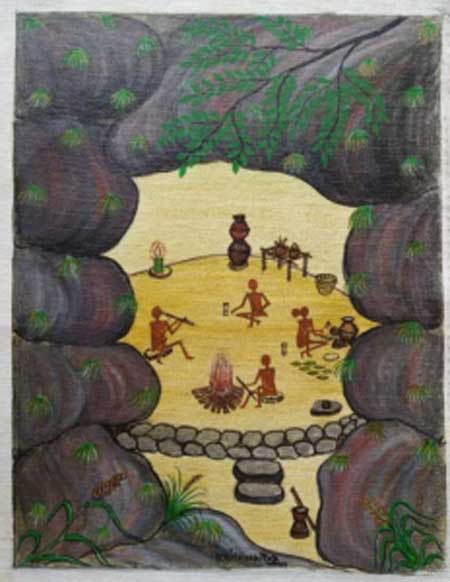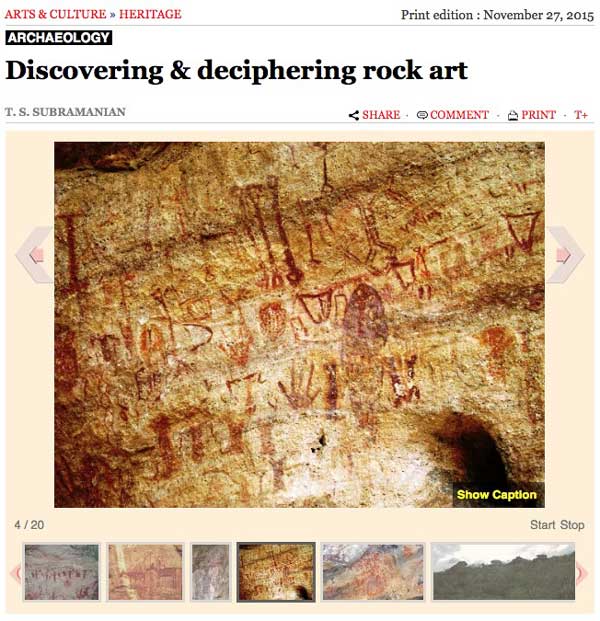
Traditional Craftsmanship
The Alu Kurumbas of Tribal Nilgiris , apart from decorating the walls of their dwelling huts with their indigenous peintings, are observed to draw caricature sketches of human beings over the rock outcrops in and around their indigenous habitats in order to bring magical effects on the people depicted therein. The graphic art tradition of Alu Kurumbas of Tribal Nilagiris might be traced back to the Prehistoric Period from the cultural point of view wherein the rock art site of Vellaricombai is regarded as their sacred site. Moreover, the Alu Kurumbas are observed to venerate the ‘ key anthropomorphic figure’ of that site as their ‘ancestral spirit’ and believe that it could be revitalized by periodical (annual) re-touching and or re-drawing the ritual cult figure (drawn already & masked with lime coat) on the wall of their shaman’s hut. They use the leaf juice (Pachchele Chaaru) and the latex extract (Vaenga Paalu) as the paint and the aerial root of banyan tree (Aalanguchchi Vaeru) as the painting brush.
Region
‘The Nilgiris’, popularly known as the ‘Blue Moutains’, is an integral part of the great Deccan Plateau which occupies the juncture of Eastern Ghats and Western Ghats of South India.
Source: National List for Intangible Cultural Heritage (ICH), Ministry of Culture, Government of India
URL: https://www.indiaculture.nic.in/national-list-intangible-cultural-heritage-ich
Date visited: 7 April 2021
Ravi Viswanathan, the son of daily wage labourers in the Nilgiris in Tamil Nadu, will soon be the first Alu Kurumba to earn a PhD degree with a thesis that documents his Adivasi community’s endangered language
The Census of India 2011 lists the total Kurumba population at 6,823, and the Alu Kurumba say there are just 1,700 of them. (The others are: Kadu Kurumba, Jenu Kurumba, Betta Kurumba and Mullu Kurumba). According to the Central Institute of Indian Languages in Mysuru, a language is ‘endangered’ when it has less than 10,000 speakers. The languages of all the Kurumba sects qualify.
The lack of a script has made codification difficult, as Viswa found while ‘borrowing’ Tamil to write. Many of the sounds could not be translated.
Source: “Think and go slowly. You will get gold” by Priti David, People’s Archive of Rural India, 8 February 2018
URL: https://ruralindiaonline.org/en/articles/think-and-go-slowly-you-will-get-gold/
Date Visited: 3 December 2022
[Bold typeface added above for emphasis]

Learn more about rock art practiced by India’s tribal communities >>
“India has about 5,000 rock art sites, next only to Australia and South Africa, where prehistoric people have recorded life as they saw it, in paintings, engravings and carvings. Finding and decoding this artistic perception of reality is a challenge for rock art hunters.” – Discovering & deciphering rock art (Frontline Magazine, 27 November 2015) >>